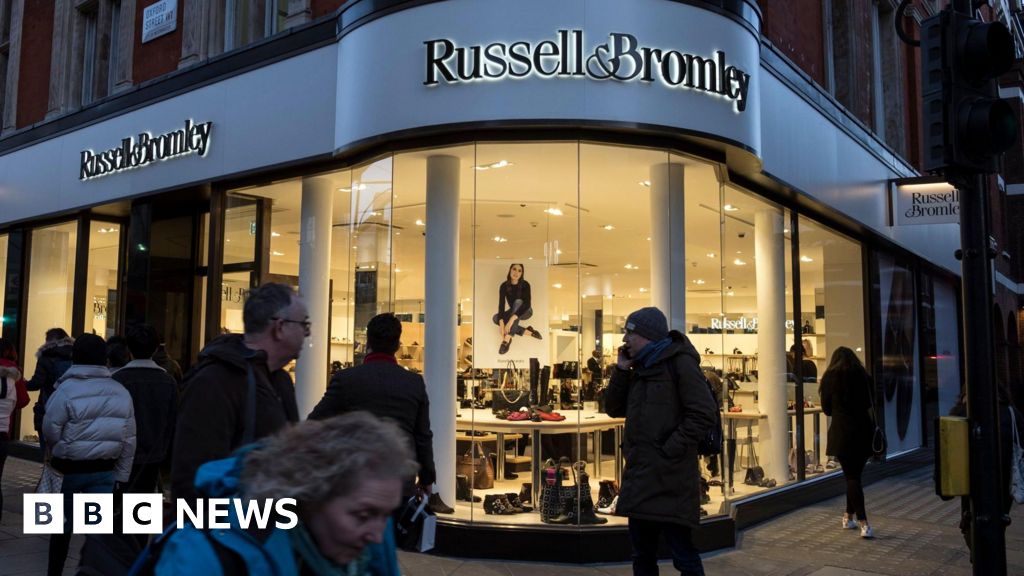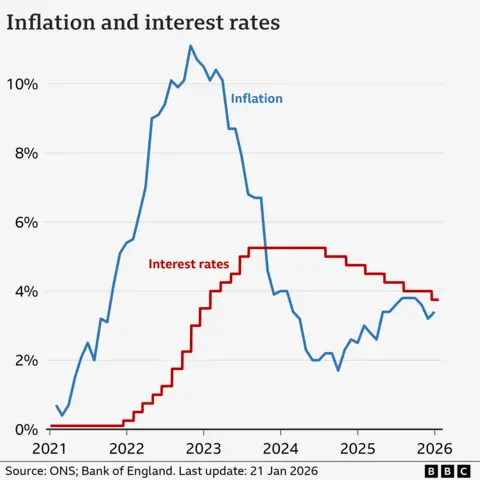Business
Nostalgic Rs 5 biscuits back? This is how FMCG firms will pass GST 2.0 benefits—It’s not cutting prices! – The Times of India

Repriced and repacked! Your biscuit, shampoo and water bottles will now be bigger!Remember when a Rs 5 Parle-G pack or a Rs 20 Bisleri bottle felt like such a steal, giving you more than you expected?Those days could soon be back as FMCG companies are planning to bring back these familiar price points by mid-November, with slightly bigger packs to match the new GST rules.
Bigger sizes instead of lesser prices
After the September 22 GST rate cuts, many items had shifted to awkward new prices as there was no clarification from the government about increasing weights. A Rs 5 Parle-G pack became Rs 4.45, a Rs 1 candy fell to 88 paise, and a Rs 2 shampoo sachet went down to about Rs 1.77, leaving shoppers frustrated.The government then issued clarification to some FMCG manufacturers allowing them to pass on the GST rate cut benefits by increasing the weight of the packets instead of reducing prices.Industry executives told ET that now that officials from the Central Board of Indirect Taxes and Customs gave a verbal clarification in meetings with FMCG firms, they can start fresh production by next week with new packets at the already popular prices, but with a 6% to 12% increase in quantity.“Over the next few days, companies will roll out new packs at the popular price points and increased weight,” said Mayank Shah, vice president at Parle Products. Snack production has already restarted, while other categories are modifying pack sizes. For biscuits, the weight will go up by 11–12%.Angelo George, chief executive of Bisleri International, said, “The current price points are inconvenient for consumers,” adding that the companies will soon go back to old popular prices but with higher volume.
Popular prices —Win-win for both!
After the initial GST cut, many products saw temporary price drops: Mondelez revised Bournvita from Rs 30 to Rs 26.69, Oreo from Rs 10 to Rs 8.90, and Gems and 5Star Rs 20 packs to Rs 17.8. Bisleri reduced 500 ml bottles from Rs 10 to Rs 9 and 1-litre bottles from Rs 20 to Rs 18. Retailers often rounded off prices or returned change with small confectionery packs, while digital payments allowed exact amounts.Tarun Arora, chief executive of Zydus Wellness, which makes Complan and Glucon-D, said that popular price points are a win-win for consumers and small retailers alike. Arora said that they make sense from a consumer perspective and are easier for marketing as well.“”It’s still early days, but companies might respond by launching new products at magic price points or even consider reaching out to regulators for guidance or relief,”” he explained.
Many await official clarification
Back in 2017, several FMCG firms were fined by the National Anti-Profiteering Authority for allegedly failing to pass on GST benefits to consumers. This time, however, government officials have clarified that companies will not face penalties if they reintroduce popular price points by increasing pack weight or volume.Dairy major Amul, however, is taking a cautious approach. Jayen Mehta, managing director of the Gujarat Cooperative Milk Marketing Federation, which markets Amul products, said, “The government’s intent was to lower pricing and we will follow it in letter and spirit. We do not intend to revise the prices and increase grammage because consumers will not get the intended benefit.”Prashant Peres, managing director at Kellanova India and South Asia, told ET last month that price tags in between the “magic” points had caused inconvenience for the industry. “In the short term, there will be some slashing of prices that we will do, or many others will do, because we just can’t turn around the supply chain fast enough. But in the long term, it will be grammage, and we will go to those price points,” he said.
GST 2.0 cuts and benefits
The GST Reforms 2025 mark a major overhaul of India’s indirect tax system, aiming to simplify taxation, reduce the burden on citizens, and stimulate business growth. The reform introduces a new two-slab structure of 5% and 18%, replacing the previous four-tier system. Luxury and sin goods such as tobacco, pan masala, aerated drinks, and high-end cars will now be taxed at 40%, ensuring fairness while maintaining government revenue.The reform significantly reduces GST on essential household items and services and the benefits of these reforms extend across the economy.The government has directed multiple times that the companies must pass on the benefits to the consumers. Earlier, Union finance minister Nirmala Sitharaman said that the Centre is working on a package to provide relief to exporters affected by US tariffs.In an hour-long interview, she told TOI the GST reforms, which came on PM Modi’s directions, focused on ensuring the benefits of rate reduction go to the common man, farmers and small businesses. She said ministries were already working with the industry to ensure that the gains are fully transferred to consumers and pointed to several companies, such as state-run insurers and a leading Indian auto company, announcing plans to reduce prices.While addressing a press conference on ‘GST Bachat Utsav’, Sitharaman also said in quite a few cases, a “more-than-expected” price reduction due to GST reforms has been passed on to end consumers.“We are convinced that on every such items the benefits are being fully passed on to consumers,” she added. The government has also introduced a helpline and an online portal for consumers to register a complaint, in case they are not receiving the benefits of the rate cuts.
Business
Next buys shoe brand Russell & Bromley but 400 jobs still at risk

High street fashion giant Next has bought shoe retailer Russell & Bromley which had collapsed in to administration.
Next paid £2.5m in a rescue deal for the upmarket British footwear and accessories seller — but the future for most of the chain’s current staff and shops remains uncertain
Next will own the brand and three of Russell & Bromley’s 36 stores, as well as some existing stock for which it is paying an additional £1.3m.
Administrators Interpath said it was considering the future of the remaining stores, which for the moment remain open, as well as nine concession stores which all employ around 400 people.
Russell & Bromley’s chief executive Andrew Bromley said it was a “difficult decision” but the sale of the brand was the best way to secure its future.
The company is around 150 years old but has become the latest to struggle in a tough retail environment.
It joins other brands in a familiar path to largely disappearing off the high street via a process of administration, which means companies are often broken up and the highest value assets sold off to the highest bidder.
The Original Factory Shop and accessories retailer Claire’s are both currently going through a process of administration, with site closures and jobs at risk. Around 1,000 people lost their jobs after Bodycare collapsed in September, while River Island will close some stores to avoid a total collapse. The woes all come after a tranche of high profile closures such as Debenhams and Wilko.
In a statement, Next said it secured “the future of a much loved British footwear brand.”
“Next intends to build on this legacy and provide the operational stability and expertise to support Russell & Bromley’s next chapter, allowing it to return to its core mission: the design and curation of world-class, premium footwear and accessories for many years to come.”
The three stores Next will acquire are in high-end shopping destinations in or around London: Chelsea, Mayfair and Kent.
Next has seen relatively solid performance in the current turbulent retail landscape – unlike Russell & Bromley which has been loss-making in recent years.
Its saviour has experience in failing circumstances: last year, Next bought out of administration fashion maternity label Seraphine, and began rolling out its FatFace concessions a few years after snapping it up.
Business
Over 80% of below 40 entrepreneurs self-made – The Times of India

MUMBAI: Nearly four out of five of India’s leading young entrepreneurs are self-made, underscoring a shift in the country’s business landscape from inheritance to merit, according to the Avendus Wealth – Hurun India Uth Series 2025. The report shows that about 80% of business leaders under 40 featured in the ranking are first-generation founders.The study tracks entrepreneurs aged up to 40 whose companies meet minimum valuation thresholds ranging from $25 million to $200 million, based on age cohort and whether the founder is first- or next-generation. Of the 436 entrepreneurs shortlisted, 349 are self-made, pointing to a growing ecosystem driven by new ideas and technology rather than legacy ownership.Among first-generation founders, Ritesh Agarwal, founder of OYO, leads the list. At 31, Agarwal has built one of the most capitalised startups in the country, raising $3.7 billion. He is followed by Aadit Palicha and Kaivalya Vohra, both 22, whose quick-commerce firm Zepto has raised $1.95 billion.Other prominent first-generation entrepreneurs include Nikhil Kamath of Zerodha, now among India’s most-followed entrepreneurs on LinkedIn; Alakh Pandey of Physics Wallah, who disrupted the ed-tech space; and Ghazal Alagh, the most-followed woman entrepreneur on the list.Next-generation leaders account for about 20% of the ranking and continue to shape large family-run businesses. Key names include Isha Ambani of Reliance Retail, which employs more than 2.47 lakh people; Abhyuday Jindal, who is driving sustainability initiatives at Jindal Stainless; and Vidhi Shanghvi, who recently led Sun Pharmaceutical’s $355 million acquisition of US-based Checkpoint Therapeutics.The report categorises entrepreneurs across three age groups—under 30, under 35 and under 40. Together, the companies led by these 436 entrepreneurs are valued at more than $950 billion, higher than Switzerland’s GDP. Bengaluru tops the list with 109 entrants, followed by Mumbai with 87 and New Delhi with 45. Software products and services dominate with 77 entrepreneurs, ahead of financial services and healthcare, highlighting the tilt toward digital and technology-led businesses.
Business
Are UK interest rates expected to fall again?

Kevin PeacheyCost of living correspondent
 Getty Images
Getty ImagesThe Bank of England has cut interest rates from 4% to 3.75%, the lowest level since February 2023.
Analysts are divided about whether the Bank will cut again when it next meets in February.
Interest rates affect mortgage, credit card and savings rates for millions of people.
What are interest rates and why do they change?
An interest rate tells you how much it costs to borrow money, or the reward for saving it.
The Bank of England’s base rate is what it charges other banks and building societies to borrow money, which influences what they charge their own customers for mortgages as well as the interest rate they pay on savings.
The Bank moves interest rates up and down in order to keep UK inflation – the rate at which prices are increasing – at or near 2%.
When inflation is above that target, the Bank typically puts rates up. The idea is that this encourages people to spend less, reducing demand for goods and services and limiting price rises.
What has been happening to UK interest rates and inflation?
The main inflation measure, CPI, has dropped significantly since the high of 11.1% recorded in October 2022.
However, it was 3.4% in the year to December 2025 – up from 3.2% in November, and slightly higher than analysts had expected.
The Office for National Statistics (ONS) – which measures inflation – said the increase was driven by higher tobacco prices and the cost of airfares over the Christmas and New Year period.

The Bank of England’s base rate reached a recent high of 5.25% in 2023. It remained at that level until August 2024, when the Bank started cutting.
Five cuts brought rates down to 4%, before the Bank held rates at its meetings in September and November 2025 before the December cut.
Are interest rates expected to fall again?
Most analysts had expected the December cut, but the vote among members of the nine-member monetary policy committee (MPC) was divided, with only five in favour.
The Bank said rates were likely to continue dropping in the future, but warned decisions on further cuts in 2026 would be contested.
“We still think rates are on a gradual path downward but with every cut we make, how much further we go becomes a closer call,” said the Bank’s governor Andrew Bailey.
If inflation continues to rise – or just fails to fall – further rate cuts are less likely.
Mr Bailey has also repeatedly warned about the continuing impact of US tariffs, and political uncertainty around the world.
The next interest rate decision is on Thursday 5 February.
How do interest rate cuts affect mortgages, loans and savings rates?
 Getty Images
Getty ImagesMortgages
Just under a third of households have a mortgage, according to the government’s English Housing Survey.
About 500,000 homeowners have a mortgage that “tracks” the Bank of England’s rate. A 0.25 percentage point cut is likely to mean a reduction of £29 in the monthly repayments for the average outstanding loan.
For the additional 500,000 homeowners on standard variable (SVR) rates – assuming their lender passed on the benchmark rate cut – there would typically be a £14 a month fall in monthly payments for the average outstanding loan.
But the vast majority of mortgage customers have fixed-rate deals. While their monthly payments aren’t immediately affected by a rate change, future deals are.
Mortgage rates have been falling recently, partly owing to the expectation the Bank would cut rates in December.
As of 21 January, the average two-year fixed residential mortgage rate was 4.77%, according to financial information company Moneyfacts. A five-year rate was 4.87%.
The average two-year tracker rate was 4.41%.
About 800,000 fixed-rate mortgages with an interest rate of 3% or below are expected to expire every year, on average, until the end of 2027. Borrowing costs for customers coming off those deals are expected to rise sharply.
Mortgage calculator
You can see how your mortgage may be affected by future interest rate changes by using our calculator:
Credit cards and loans
Bank of England interest rates also influence the amount charged on credit cards, bank loans and car loans.
Lenders can decide to reduce their own interest rates if Bank cuts make borrowing costs cheaper.
However, this tends to happen very slowly.
 Getty Images
Getty ImagesSavings
The Bank base rate also affects how much savers earn on their money.
A falling base rate is likely to mean a reduction in the returns offered to savers by banks and building societies.
The current average rate for an easy access savings account is 2.45%, according to Moneyfacts.
Any further cut in rates could particularly affect those who rely on the interest from their savings to top up their income.
What is happening to interest rates in other countries?
In recent years, the UK has had one of the highest interest rates in the G7 – the group representing the world’s seven largest so-called “advanced” economies.
In June 2024, the European Central Bank (ECB) started to cut its main interest rate for the eurozone from an all-time high of 4%.
At its meeting in June 2025 the ECB cut rates by 0.25 percentage points to 2% where they have remained.
The US central bank – the Federal Reserve – has cut interest rates three times since September 2025, taking them to the current range of 3.5% to 3.75%, the lowest since 2022.
President Trump had repeatedly attacked the Fed for not cutting earlier.
-

 Tech1 week ago
Tech1 week agoNew Proposed Legislation Would Let Self-Driving Cars Operate in New York State
-

 Entertainment1 week ago
Entertainment1 week agoX (formerly Twitter) recovers after brief global outage affects thousands
-

 Sports6 days ago
Sports6 days agoPak-Australia T20 series tickets sale to begin tomorrow – SUCH TV
-

 Politics4 days ago
Politics4 days agoSaudi King Salman leaves hospital after medical tests
-

 Business5 days ago
Business5 days agoTrump’s proposed ban on buying single-family homes introduces uncertainty for family offices
-

 Tech7 days ago
Tech7 days agoTwo Thinking Machines Lab Cofounders Are Leaving to Rejoin OpenAI
-

 Tech6 days ago
Tech6 days agoMeta’s Layoffs Leave Supernatural Fitness Users in Mourning
-

 Fashion4 days ago
Fashion4 days agoBangladesh, Nepal agree to fast-track proposed PTA









